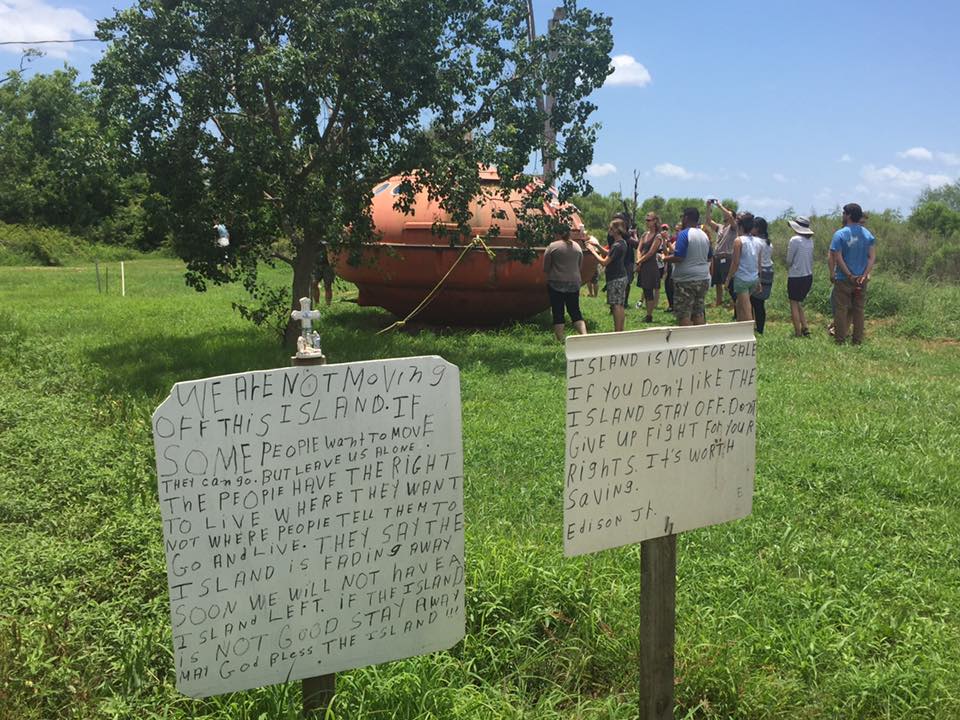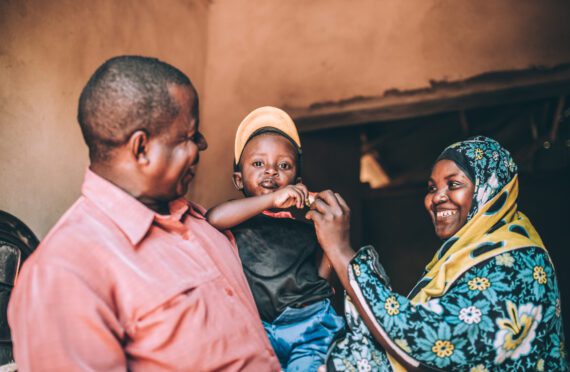By Karyn Bigelow
The link between climate change and hunger in developing countries is clear to most people. For example, a shorter rainy season can severely affect how much food a small-scale farmer in Tanzania can grow to feed her family throughout the year. Here at home, however, the link may not be as clear. The connection is often through the loss of homes, jobs, and livelihoods. Last month, I saw an example of this firsthand while attending the Green Faith Emerging Leaders Convergence in New Orleans, La.
The week-long conference brought together 60 faith leaders from the U.S. and Canada who are engaged in climate justice work.
New Orleans is the epitome of a North American city struggling with climate change. We heard from survivors of Hurricane Katrina. It was a powerful week, but one day stuck out the most to me.
We toured the Isle de Jean Charles, a bayou community an hour and a half outside New Orleans. We met our tour guides, David Gauthé and Coy Verdin, the night before the visit. They spoke for less than 10 minutes, but the gravity of their words was not lost on me. I began to realize that my feet were about to walk on land that may not be around in 10 years or even less than that.
The state of Louisiana lies below sea level, and the southeastern region is flooding. Since 1955, 90 percent of the land mass of Isle de Jean Charles has disappeared. Every 38 minutes this area of the state loses a football field worth of land. Once tall trees are now barely poking out of the water.
Isle de Jean Charles is set to become the first community in the nation to be relocated due to the effects of climate change. In January, the U.S. Department of Housing and Urban Development allocated $48 million for the resettlement.
With each tropical storm, there is a risk of infrastructure being wiped out by floods. Public services, such as the police department and the elementary school, have already been relocated out of Isle de Jean Charles. One long road with only two lanes connects people in the community to markets, stores, and other needed services. The road has been rebuilt multiple times due to flooding from tropical storms, each time repairs costing the federal government $3 million.
This is a community of hard-working people, many of whom are fishermen and whose families have lived here for generations. They are trying to cope with the growing challenges climate change brings. As a community, they have come to together to make sure that they can prolong their ability to live in Isle de Jean Charles as long as possible.
We should care about the challenges facing the people of Isle de Jean Charles. Not only does climate change jeopardize their food security and safety, but residents are emblematic of many other communities in the U.S. and abroad already affected or expected to be affected by climate change.
Without reforms, climate change will wipe out the progress the world has made in eliminating poverty and ending hunger. Crops and land necessary for the livelihoods of smallholder farmers abroad will cease to exist, and closer to home rising waters will engulf more and more communities, shattering lives and pulling vulnerable people deeper into poverty.
Coy Verdin, one of our tour guides, is a fourth-generation commercial fisherman. Fishing is in his family’s blood and how his family has made its living. However, he does not want to teach his children how to fish.
He said he does not think the family profession can continue. The sea has been their support in the past, but now it is destroying their future.
Karyn Bigelow is the government relations coordinator at Bread for the World.



